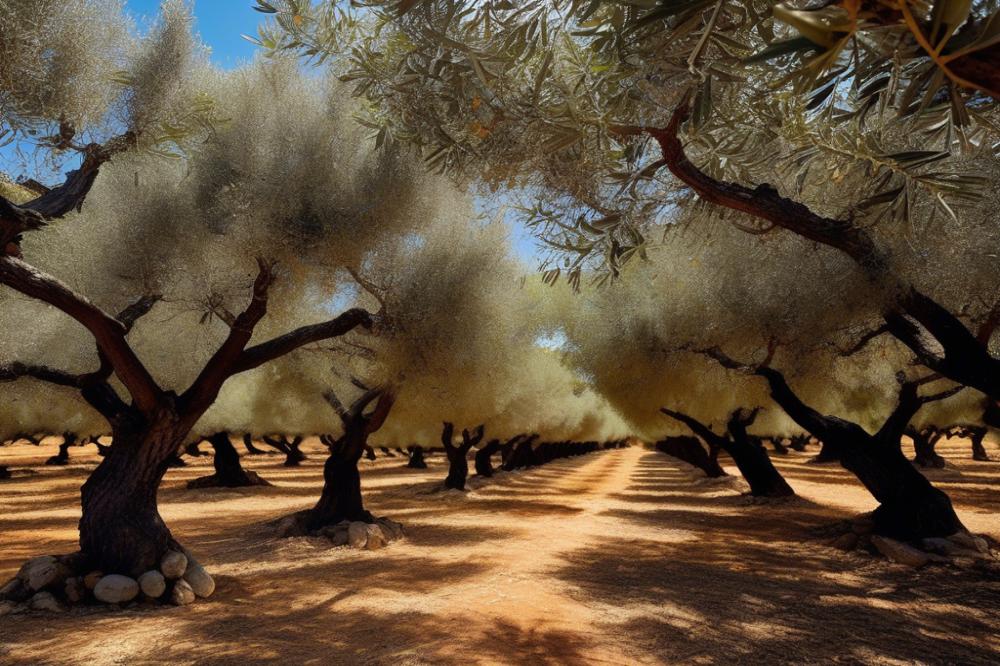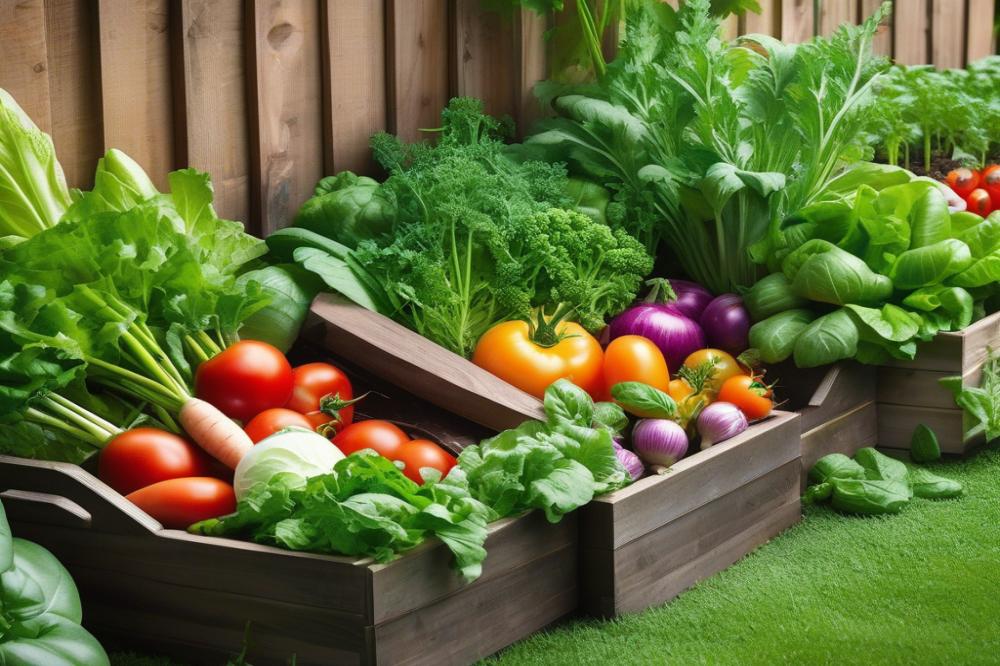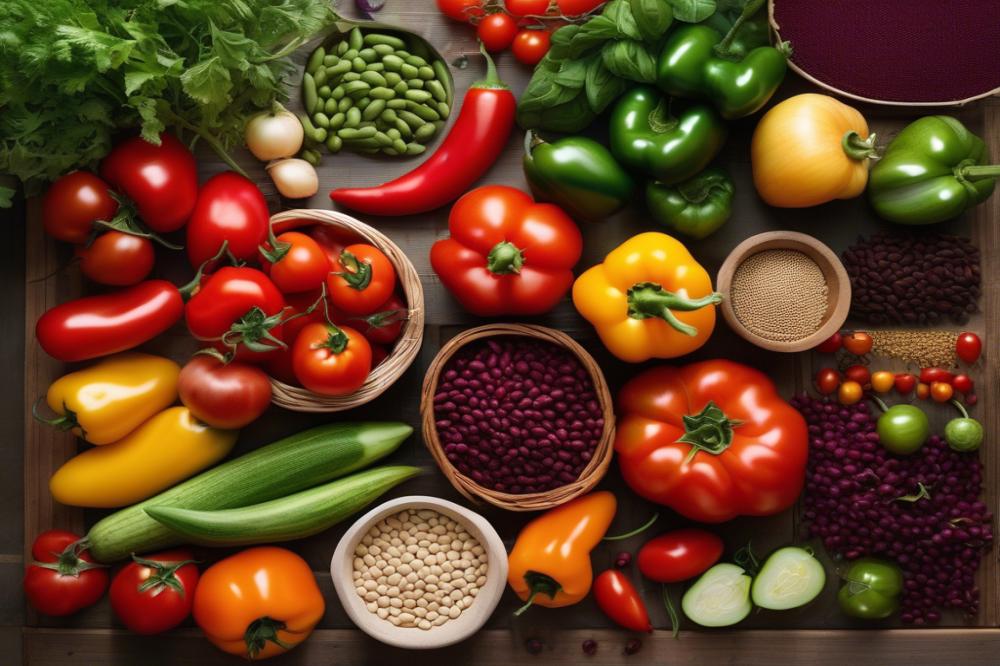Benefits of organic olive farming
organic olive farming is a method that emphasizes natural processes. This type of agriculture avoids synthetic fertilizers and pesticides, focusing instead on the health of the ecosystem. By promoting techniques like crop rotation and composting, it supports robust soil health. Moreover, farmers often use integrated pest management strategies, which help control pests in a more environmentally friendly way. The principles of organic farming underline biodiversity, emphasizing the importance of maintaining a diverse range of plants and animals on the farm.
Globally, the popularity of organic farming continues to rise. More consumers are becoming aware of the health benefits linked to organic foods. People are increasingly seeking products that are free from harmful chemicals. Demand for organic produce reflects a growing preference for cleaner, healthier choices. Countries around the world are shifting towards sustainable agriculture practices. This shift is not just a trend; it’s a response to increasingly urgent environmental concerns.
Several advantages come with organic olive farming. Firstly, the quality of olive oil produced is often superior. Consumers find that organic olive oil tends to have richer flavors and higher nutritional value. Furthermore, farming practices that enhance biodiversity support local ecosystems. health benefits associated with organic products can lead to improved well-being among consumers. Another important aspect is the environmental impact. Organic methods promote climate resilience by enhancing the soil’s ability to retain water and nutrients. These practices benefit both the planet and the farmers’ bottom line. Economic viability is another crucial factor, as organic certification can result in higher market prices for premium products. Overall, organic olive farming is a holistic method that connects health, environment, and economic sustainability.
Health Benefits

Olives and olive oil offer impressive nutritional advantages. They are rich in monounsaturated fats, which are heart-healthy. Moreover, they contain antioxidants that may reduce the risk of chronic diseases. Flavonoids and phenolic compounds found in these foods contribute to their health benefits.
Farmers who embrace organic farming avoid synthetic pesticides and chemicals. This practice means that consumers enjoy olives and oils that are free from harmful residues. Health-conscious individuals often prefer organic options for this reason. They appreciate knowing their food does not come from contaminated sources.
Various studies have explored the effects of organic olive oil on human health. Research indicates that people consuming organic varieties may experience lower blood pressure and improved cholesterol levels. These health improvements are tied to the oil’s high antioxidant content. People may also find that organic olive oil supports better digestion.
By promoting good soil health and biodiversity, organic cultivation methods have a wider environmental impact. Healthy soils help crops grow better while avoiding chemical fertilizers. Moreover, a diverse ecosystem fosters improved pest management on farms, reducing the need for harsh chemicals.
The process of obtaining organic certification highlights the commitment to quality. This certification ensures that consumers receive a product that meets strict standards. It also supports climate resilience in farming methods, making the industry more sustainable. Consumers can feel good about choosing organic as they support economic viability in local farming communities.
Environmental Impact

Organic farming practices have a significant positive effect on ecosystems. These methods avoid the use of harmful chemicals. This leads to a reduction in chemical runoff. Pollutants from conventional farming can damage local water sources, but organic techniques protect them.
Using natural pest management strategies helps maintain soil health. Diverse planting encourages biodiversity, which benefits the entire ecosystem. Many insects and animals find habitats in organic olive groves. This variety leads to a more resilient environment.
Organic certification also attracts consumers who care about sustainability. They recognize the relation between farming practices and olive oil quality. The desire for health benefits encourages farms to adopt these methods.
Another advantage is the reduction of greenhouse gas emissions. Sustainable practices enhance climate resilience. They allow for farming that can withstand changing weather patterns better than traditional methods.
Farmers who turn to organic methods often find economic viability too. Although there might be higher initial costs, the long-term benefits can outweigh them. Healthier ecosystems can lead to better yields and greater market demand.
In conclusion, the environmental impact of sustainable farming is profound. Its benefits extend beyond the farm gate. The approach demonstrates a commitment to both quality products and a healthier planet.
Soil Health

Farming practices that emphasize organic methods significantly boost soil structure and fertility. Healthy soil serves as the foundation for successful farming, particularly in olive cultivation. When farmers avoid synthetic chemicals, they also reduce the risk of degrading natural soil components.
One key to enhancing soil fertility comes from using compost and natural fertilizers. Compost improves the nutrient content of the soil while fostering a rich ecosystem. It helps retain moisture and encourages beneficial microorganisms to thrive. Natural fertilizers, derived from plant or animal sources, also contribute essential nutrients without harming the environment.
The impact of organic farming methods on soil microorganisms is profound. A diverse array of microbes plays a vital role in nutrient cycling. They break down organic matter, making nutrients available to plants. Increased biodiversity in the soil translates to healthier plants and better olive oil quality.
Organic certification adds credibility to these practices. It assures consumers that the olives are grown without harmful pesticides or fertilizers. This certification process encourages farmers to adopt sustainable methods that also enhance soil health.
Incorporating organic methods extends beyond mere soil improvement. It enhances climate resilience for olive trees. By fostering stronger soil, farmers can better withstand extreme weather events. This adaptability leads to more stable yields and economic viability for growers.
Lastly, organic approaches not only benefit the environment but also contribute to pest management. Healthy soils help create a balanced ecosystem that naturally regulates pests. This reduces dependence on chemical interventions and fosters a more sustainable agricultural model.
Biodiversity
Organic olive farming promotes diverse ecosystems through thoughtful and careful practices. This approach not only improves the environment but also supports healthier agricultural systems. Farmers engage in polyculture techniques by growing different crops alongside olive trees. Such methods create a more dynamic habitat for various species. Insects, birds, and beneficial plants thrive in this richer landscape.
Wildlife habitats find a home in organic farms. Cover crops, hedgerows, and natural vegetation all play a vital role. These areas provide shelter and food for numerous animals. For instance, birds consume harmful pests, while beneficial insects help with pollination. This variety in species leads to healthier ecosystems.
Biodiversity brings significant advantages for pest management. A diverse range of plants attracts predators of harmful insects. These natural controls greatly reduce the reliance on chemical pesticides. This process helps maintain soil health as well, creating a balanced environment where microorganisms can flourish. Organic certification encourages sustainable farming practices that promote these benefits.
Climate resilience is another key advantage of fostering biodiversity. A healthy ecosystem can better withstand adverse weather conditions, such as droughts or floods. This type of farming not only supports the land but also enhances the quality of olive oil produced. With a focus on natural methods, farms yield higher-quality products that offer health benefits.
Moreover, economic viability can improve in a diverse farming setting. By growing a variety of crops, farmers can generate multiple income streams. This strategy reduces risks associated with market fluctuations. Overall, diverse ecosystems serve as a foundation for sustainable agriculture, balancing economic needs with environmental care.
Organic Certification
Obtaining organic certification is a fundamental step for farmers who want to grow olives without harmful chemicals. This process typically involves meeting strict guidelines set by certifying organizations. Farmers must submit detailed paperwork and undergo inspections to showcase their farming practices. Each certification body may have slightly different requirements, but the core principles remain the same.
Importance of certification cannot be overstated. When an olive farm is certified organic, it communicates a commitment to sustainable practices. This builds trust with consumers, who are increasingly interested in the health benefits and environmental impact of their food choices. Shoppers often seek out organic labels, believing those products to be safer and of higher quality. This perception can significantly boost the marketability of olive oil.
Standards governing organic farming focus on soil health and biodiversity. Farmers must maintain healthy soil without synthetic fertilizers. They use crop rotation and organic compost to enrich the land. Pest management strategies must rely on natural methods rather than toxic chemicals. These practices support a diverse ecosystem, enhancing not just the olives but also the entire farm environment.
Climate resilience is another important factor. By adopting organic practices, farmers contribute to a more sustainable agricultural system. Healthy soils can better absorb water and withstand extreme weather. This adaptation is crucial in the face of climate change, ensuring that the production of olive oil remains viable in varying conditions.
Economic viability is a key consideration, too. Organic certification can open doors to higher-end markets where consumers are willing to pay more for quality. The commitment to organic farming practices often requires an initial investment, but the long-term benefits can outweigh these costs. As more consumers prioritize organic products, farmers can thrive by embracing these standards.
Olive Oil Quality
Organic olive oil stands out for its superior quality when compared to conventional oil. Farmers who practice organic methods focus on natural processes, which can enhance the flavor and nutritional content of the oil. The taste of organic olive oil often reflects the health of the trees and the soil. You’ll find that these oils present a range of flavor profiles, from fruity and peppery to herbaceous and nutty.
Health benefits play a significant role in the appeal of organic olive oil. Studies suggest that organic oils contain higher levels of antioxidants and polyphenols. These compounds are believed to offer protective effects against oxidative stress in the body, promoting overall wellness. People looking for healthier options often turn to organic products because they perceive them as safer and more nutritious.
Consumer preferences continue to shift towards organic products, driven by increasing awareness of their environmental impact. Many buyers are concerned about chemical pesticides and fertilizers used in conventional farming. Choosing organic oils supports sustainable farming practices that promote biodiversity, soil health, and climate resilience. This gives consumers peace of mind, knowing they are making choices that are better for the planet.
Moreover, organic certification assures buyers of the oil’s purity and production methods. It also highlights the commitment of farmers to maintain ecological balance. Pest management in organic farming relies on natural predators and preventive measures rather than synthetic chemicals. This leads to an ecosystem that benefits not just the crops, but wildlife as well.
Economic viability is another factor in the rise of organic olive farming. As demand for organic olives grows, farmers can often fetch better prices for their products. This trend represents not only a lucrative opportunity but also a shift toward more ethical consumption. People are willing to pay a premium for quality oils that align with their values.
Pest Management
Pest management in olive farming is crucial for maintaining healthy crops. Organic practices focus on nurturing the environment while keeping pests at bay. Farmers often rely on natural predators to manage harmful insects. Ladybugs and parasitic wasps are examples of beneficial species that prey on pests. By encouraging these creatures, growers help create a balanced ecosystem.
Using organic pesticides also plays a role. These products are derived from natural sources, making them safer for the environment than synthetic options. For example, neem oil is an effective deterrent against aphids and mites. Many substances used in organic farming are less harmful to beneficial insects and human health.
Integrated Pest Management (IPM) is another strategy to consider. This approach combines various methods for the best results. Farmers monitor pest populations closely to determine the most effective interventions. IPM promotes environmental health and biodiversity while also improving the overall quality of crops. The result is a healthier farm that thrives on its own.
Implementing these pest management strategies can lead to greater soil health and better olive oil quality. Healthy plants that face fewer pest pressures are more resilient to climate challenges. Additionally, organic certification can enhance the economic viability of farms. Generally, consumers are willing to pay more for products that meet organic standards.
Overall, these practices contribute to a sustainable agricultural system. They reduce the environmental impact while addressing the needs of the farm. A balanced approach to pest management benefits both the farmers and the ecosystems they cultivate.
Climate Resilience
Adapting to climate variability is a pressing challenge for farmers today. Organic olive farms utilize various practices that enhance their resilience to droughts and other extreme weather events. These farms implement strategies to protect crops while maintaining soil health and promoting biodiversity.
One effective method includes planting cover crops. These plants not only prevent soil erosion but also improve soil quality. In addition, they can enhance water retention during dry periods, which is especially vital for olive trees. Crop rotation is another technique that helps maintain nutrient levels in the soil. By rotating different plants, farmers prevent nutrient depletion and reduce the risk of pests.
The use of mulching plays a significant role too. Organic matter spread around trees can keep moisture in the soil for longer periods. This practice is particularly useful during heat waves. Moreover, organic certification often requires farmers to follow these sustainable methods, which benefit the environment in numerous ways.
Pest management is also approached differently on these farms. Instead of using synthetic pesticides, organic farmers rely on natural predators and other environmentally-friendly methods. This not only helps in maintaining the health of olive trees but also boosts the overall biodiversity of the area. Higher biodiversity can make farms more resilient to pest outbreaks and diseases.
Looking at the long-term sustainability of these practices reveals a strong commitment to the environment and the community. Organic farming systems tend to use fewer resources, making them more economically viable over time. As the world faces increasing climate challenges, these methods can play a pivotal role in ensuring food security and promoting healthier ecosystems.
Health benefits extend beyond the food product itself. The organic olive oil produced tends to be of higher quality, which is appealing to consumers. Focusing on these sustainable farming practices helps protect the land, waters, and communities for future generations.
Economic Viability
The financial benefits of farming olives organically can be significant for producers. Growing and selling organic products often brings higher prices compared to conventional ones. Customers are increasingly willing to pay more for goods that are seen as healthier and more eco-friendly. The rise in awareness about health benefits fuels the demand for organic products. This creates a favorable market for those who choose to grow olives organically.
Market trends illustrate a strong interest in organic items. Statistics show that more consumers are purchasing organic food, and this trend continues to grow. Increased demand encourages farmers to shift to practices that promote greater soil health and biodiversity. Many people are concerned about the environmental impact of conventional agriculture. They prefer products that come from sustainable farming practices, leading to more opportunities for organic producers.
Cost considerations play a crucial role in determining profitability. Certifications can require an initial investment, but they often pay off in the long run. Organic certification assures buyers of quality and adherence to high standards, which can enhance brand reputation. Managing pests without synthetic chemicals may require more labor and creativity, but it often results in healthier olive trees. Sustainable pest management strategies contribute to climate resilience and yield quality crops.
In terms of profit margins, organic olive oil typically commands a premium price. Better quality olives translate to better quality oil, which is appealing to consumers. As the market for premium olive oil grows internationally, farmers can capitalize on this trend. Therefore, investing in organic practices can lead to greater financial returns over time. All these factors highlight the economic viability of moving towards organic olive farming.
Farming Practices
Organic olive farming incorporates various methods that prioritize health, sustainability, and quality. To start, crop rotation plays a vital role in these practices. Farmers often alternate different crops to break pest cycles and enhance soil fertility. This technique helps maintain soil health and promotes biodiversity within the ecosystem.
In addition to crop rotation, cover cropping serves as a key strategy. Cover crops like legumes add nutrients back to the soil while preventing erosion. These plants also provide habitat for beneficial insects that aid in pest management. Healthy soil leads to better olive oil quality, which is crucial for consumers seeking health benefits from their food.
Sustainable irrigation techniques are another essential component. By using methods such as drip irrigation, farmers can conserve water and adapt to changing climate conditions. This practice not only supports climate resilience but also contributes to the economic viability of the farm. Water-efficient systems help reduce costs while also safeguarding precious resources.
Community approaches have shown promise in organic olive farming. Cooperatives allow small farmers to pool resources and share knowledge. This builds a network of support that encourages sustainable practices and organic certification. Farmers can benefit from group marketing strategies, elevating the profile of their high-quality olive oil.
Connecting with neighbors and exchanging ideas fosters a sense of engagement. Local workshops and shared experiences can spark innovation and improve farming techniques. By collaborating in this way, farmers strengthen their resilience against economic fluctuations and environmental challenges.
Overall, the combination of these farming practices leads to a positive environmental impact. Organic methods prioritize the long-term health of the soil, promote biodiversity, and create a sustainable future for olive cultivation. Embracing these practices also nurtures community ties, ensuring a better landscape for generations to come.
Bringing It All Together
Organic olive farming offers numerous advantages that benefit both consumers and the planet. Health benefits from consuming organic olives are well-documented. These olives tend to have a higher antioxidant content, which contributes to better overall health. Avoiding synthetic chemicals during the farming process also means fewer harmful residues in the food we eat.
Adopting organic practices fosters a healthier ecosystem. Chemical pesticides and fertilizers can damage soil and water quality. By choosing organic methods, farmers minimize their environmental impact. This leads to the preservation of biodiversity. We all depend on a balanced environment, so supporting natural practices is essential for our future.
Customers play a crucial role in this transition. By buying from organic farmers, consumers help promote sustainable agriculture. Supporting these farmers means investing in a cleaner food system. In return, we receive nutritious products that are good for our bodies and our surroundings.
Embracing organic olive farming is more than just a trend; it’s a step toward a healthier lifestyle and a more sustainable world. Everyone can contribute to this positive change by making informed choices at the grocery store. Together, we can create a healthier planet for generations to come.



